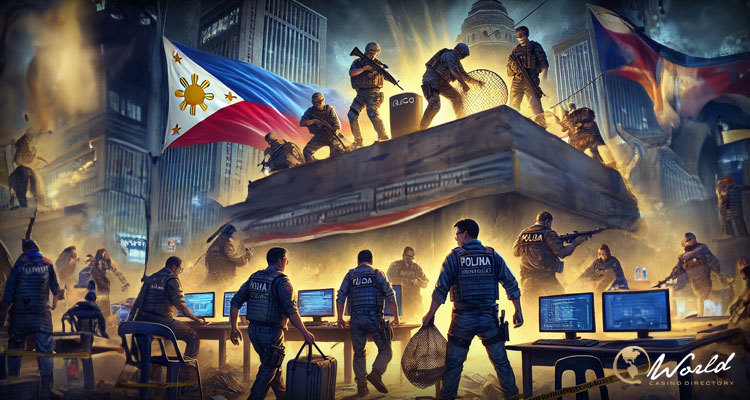In a landmark decision, Philippine President Ferdinand Marcos Jr. declared an immediate ban on all Philippine Offshore Gaming Operators (POGOs) during his latest State of the Nation Address. This directive is part of a broader governmental crackdown aimed at addressing the myriad issues linked to POGOs, including criminal activities and regulatory non-compliance. President Marcos specified that all existing POGO licenses are to be revoked, and operations must shut down by the end of the year, signaling a clear intent to cleanse the sector of its long-standing issues.
The formation of PNP’s special task force:
Simultaneously, according to Inside Asian Gaming, the Philippine National Police (PNP) has intensified its efforts to eradicate illegal POGO activities by establishing a special task force. Named “Task Force Skinner,” this initiative is spearheaded by PNP Chief Gen. Rommel Francisco Marbil. The task force is a strategic move to unify various police divisions under a common goal—identifying, targeting, and dismantling illegal gaming operations. This includes units specialized in cybercrime, anti-kidnapping, and community policing, all working together to address the complex challenge posed by unregulated gambling entities.
As the same source reports, the immediate ban of POGOs and the proactive law enforcement actions are expected to bring significant changes to the Philippines’ regulatory landscape. These measures are anticipated to mitigate the negative impacts of illegal gambling, such as money laundering, human trafficking, and digital fraud, which have plagued the industry. By eliminating these unlawful enterprises, the government aims to restore integrity and public trust in the regulatory framework governing gambling.
The synergy between the government’s policy decisions and law enforcement’s operational strategies is crucial in ensuring the effectiveness of these new measures. The collaboration is designed to ensure that the transition away from POGO operations is smooth and that any potential loopholes exploited by illegal operators are closed. This integrated approach demonstrates the government’s commitment to reforming the gaming sector and setting a precedent for future regulatory efforts.
Challenges ahead and the road to reform:
Despite the decisive actions taken, the road ahead in reforming the gaming sector involves major significant challenges. The task force will need ongoing support and resources to monitor and enforce the ban effectively. Additionally, there may be economic repercussions for regions that heavily rely on POGOs for employment and revenue. Addressing these concerns will require a balanced approach that considers economic impacts while prioritizing regulatory compliance and ethical standards in the Philippines.




